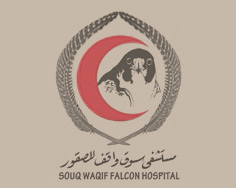Common Diseases in Falcon
« BackCapillaria

Capillaria is also known locally as ‘Alfarsa worms’ – capillaria is an internal parasite with lengths varying between 1 – 5cm. The infection leads to the formation of a whitish membrane in the oesophagus and gullet. Those parasites are also present in the mouth, pharynx, oesophagus and bowels, the symptoms may resemble that of different diseases like Trichomoniasis, other fungal diseases and vitamin A deficiency.
Humid and mild weather help keeps the worm’s eggs infectious. Earth worms act as a transporting host for the disease to the healthy falcons.
Transmission
- By direct ingestion of infected earth worms by a healthy falcon.
- Through the use of contaminated instruments or contaminated food which contain worm’s eggs.
Symptoms
- Delay in food digestion.
- Affected falcon shows regurgitation of food and it will start to tear the food into small pieces without eating them.
- Weight loss.
- Loss of appetite.
- Weakness or losses of ability to fly in severe cases.
- Inability to balance its flight or to stay balanced on ground.
Diagnosis
Diagnosis is achieved by microscopic examination of the falcon’s faeces, which may show the distinguished worm’s eggs.
Prevention and Control
- Regular health check twice a year if possible, one check after the end of the hunting season and the other after the end of the moulting season.
- Manage and control of the environment the falcons are kept, with insects, snails and earth worms carefully eradicated.
- Make sure that the used instruments are clean and regularly checked to avoid contamination with worm’s eggs.
Treatment
Treatment is possible with using different anti-parasitic drugs like Ivermectin and Moxidectin.





